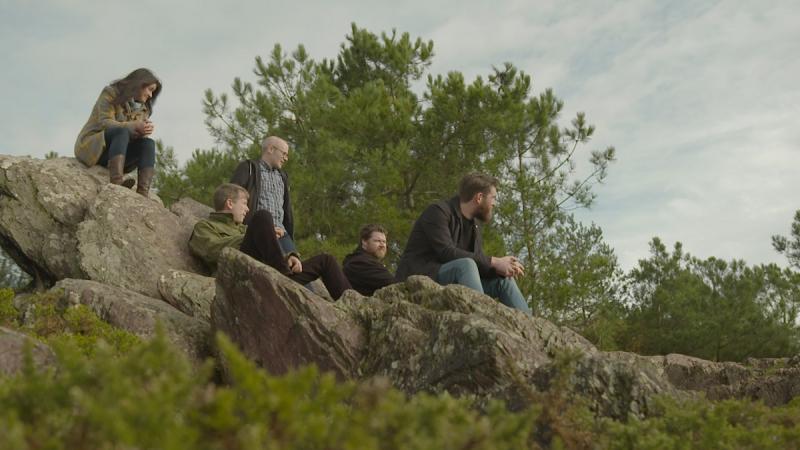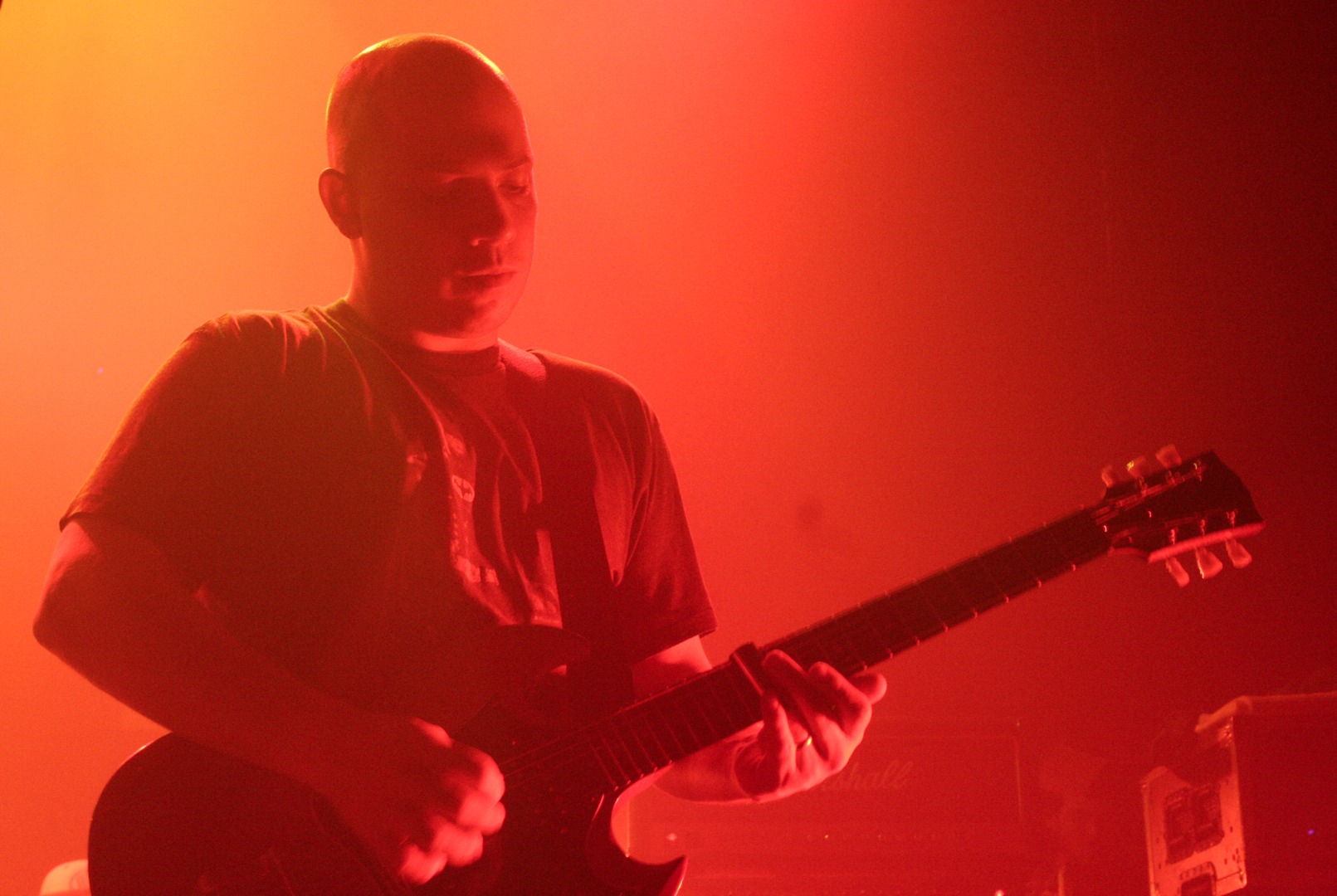Lost in France | reviews, news & interviews
Lost in France
Lost in France
Nostalgic music documentary gets a hero's welcome at Glasgow Film Festival

Pulling together a music documentary strikes me as a simple enough concept. Gather your talking heads in front of a nice enough backdrop, splice with archive footage in some semblance of a narrative order and there you go. There’s no need to, say, hire a minibus and attempt to recreate a near-mythological gig from 20 years ago.
While taking his protagonists on the physical journey from Scotland to Mauron in the north west of France, director Niall McCann takes them on an emotional journey, too: from the close-knit friendships and fertile new music breeding ground of Glasgow in the mid-1990s and through the varying critical and commercial successes achieved along the way by each of the participants. Bound together with a deftness of touch and clear, deep love of the source material – Irishman McCann was drawn to the source material through his love for Glasgow post-rockers Mogwai – Lost in France is both a touching oral history of beloved indie record label Chemikal Underground and a thought-provoking look at how the performance and production of independent music has radically shifted over the past two decades.
It is Henderson who is in many ways the heart of 'Lost in France'Glasgow, as label boss Stewart Henderson muses early in the documentary, has always been a musical city – and so it was fitting to see the film presented in one of the city’s better mid-sized venues, mere hours after Glasgow was confirmed as host of next month’s BBC 6 Music Festival. Lost in France “supergroup” The Maurons performed as part of the launch event, before heading back to the O2 ABC for a short set which was streamed to viewers in cinemas across the country as well as those who had just watched it in the sold-out Glasgow hall.
If it sounds like a strange experience, it was even more so for the band members: Emma Pollock and Paul Savage of the Delgados, Mogwai’s Stuart Braithwaite (pictured below), guitarist and songwriter RM Hubbert and Alex Kapranos of Franz Ferdinand. None of them, said Pollock after a performance of her own song “Monster in the Pack” made even more gorgeous by Hubbert’s virtuoso acoustic guitar, understood why the film was being made at the time. Rather, it was McCann’s idea to remove them from their usual surroundings and have them revisit what many of the documentary’s participants describe as a formative point in their lives that turned the usual self-deprecating recollections into something altogether more meaningful.
 Despite his absence from the stage, with his own performing days now behind him, it is Henderson who is in many ways the heart of Lost in France. The once fresh-faced Delgados bass player (his impressive facial hair draws comment from Mauron festival programmer David Sosson on the musicians’ return to France in the documentary) is now archivist and historian in his role as director and co-founder of Chemikal Underground. It is something, he tells McCann, which gives him a tremendous sense of pride as it has given him the opportunity to participate in musical projects as varied and influential as Mogwai, Bis and Arab Strap.
Despite his absence from the stage, with his own performing days now behind him, it is Henderson who is in many ways the heart of Lost in France. The once fresh-faced Delgados bass player (his impressive facial hair draws comment from Mauron festival programmer David Sosson on the musicians’ return to France in the documentary) is now archivist and historian in his role as director and co-founder of Chemikal Underground. It is something, he tells McCann, which gives him a tremendous sense of pride as it has given him the opportunity to participate in musical projects as varied and influential as Mogwai, Bis and Arab Strap.
In a revealing interview, Henderson describes the role of the label as one of taking a chance on up-and-coming bands, “so that they can make something stunning on their third or fourth album”. Chemikal Underground “got in under the wire”, at a time when small labels still had the opportunity to make an impact in the music press or on shows like Top of the Pops. His worry now, he says, is that albums like the Delgados’ Mercury-nominated The Great Eastern would be “lost to the ether” now, when few independent outfits have the energy or the resources to make it past their first or second album.
It’s a theme addressed with even more candour by Kapranos, arguably the most commercially successful of the featured musicians, who credits the role played by unemployment benefits and apprenticeship programmes in developing a great many creative careers. The rhetoric around “idle spongers” ignores the contributions of those who went on to forge successful careers, paying back into the system many times over, he says.
Lost in France wouldn’t be a documentary with Glasgow at its heart without its fair share of characters, and DJ, promoter and band manager Tam Coyle provides many of its highlights with his vivid descriptions of the original trip to Mauron on “a bus full of bawbags” back in 1997. And if “cruise ship lounge band from hell” The Johnny 7 don’t put you in the mood for a party, this probably isn’t the film for you.
rating
Share this article
The future of Arts Journalism
You can stop theartsdesk.com closing!
We urgently need financing to survive. Our fundraising drive has thus far raised £33,000 but we need to reach £100,000 or we will be forced to close. Please contribute here: https://gofund.me/c3f6033d
And if you can forward this information to anyone who might assist, we’d be grateful.

Subscribe to theartsdesk.com
Thank you for continuing to read our work on theartsdesk.com. For unlimited access to every article in its entirety, including our archive of more than 15,000 pieces, we're asking for £5 per month or £40 per year. We feel it's a very good deal, and hope you do too.
To take a subscription now simply click here.
And if you're looking for that extra gift for a friend or family member, why not treat them to a theartsdesk.com gift subscription?

Add comment